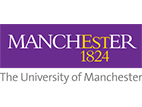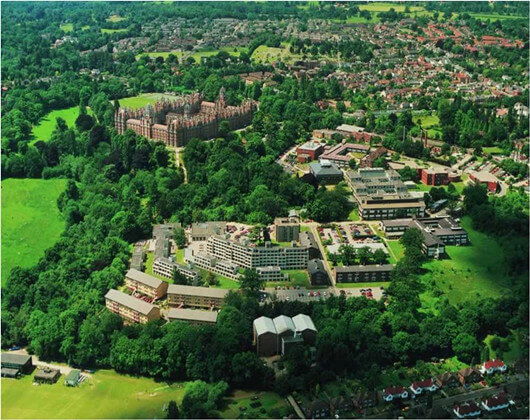2016 example programme structure The Mechanical Engineering Design MSc is studied for a full year. Semester 1 starts in September and you will study four units that are essential to getting a good start in your Mechanical Engineering Design MSc programme. These units are: Mechanical Engineering Group Design This is an exciting unit that allows students to work in groups to design, manufacture, test, and launch a product. Groups work from an open design brief to create a product that is innovative and meets a real customer need, they work together to develop the concept, budget for the project, fix a specification, carry out detailed design, liaise with manufacturing staff to produce their components, assemble and test their proposed solution and demonstrate the final product at the end of the unit. It is a hands-on unit that is rewarding, design is the core of the unit however students are introduced to all of the other activities that are related to designing and manufacturing a product to a fixed deadline. Finite Element Modelling The finite element method is a computer simulation technique used in all areas of engineering to assess and improve the design of materials, components and structures. The Manchester philosophy is to provide a solid foundation in the theory as well as the practical skills required to use the method effectively in industry, the latter through alignment with the Professional Simulation Engineer accreditation scheme run by NAFEMS. Research Methods This unit introduces MSc students to the Scientific Method with emphasis on relevance to research projects and dissertation writing. It equips students with the basic skills to design, implement and communicate research. Students will learn how to identify research questions, critically evaluate scientific literature, and apply appropriate methodologies. They will develop skills for the robust analysis of results. The unit covers academic writing skills for production of papers, reports and dissertations; as well as how to effectively deliver oral presentations to a range of audiences. Students will be introduced to the topics of Academic Integrity, Ethics and avoidance of plagiarism. Course appropriate Programming such as MATLAB and FORTRAN will also be included. Training in these essential research competences will be completed before the students embark on their projects to enable students to maximise their academic potential and produce high quality dissertations. Experimental Methods Experimentation in engineering is a crucial part of any design, research or production process. This unit contains both theoretical and practical aspects of experimentation including signal processing relevant to any engineering discipline. These skills will be reinforced in both a theoretical and a practical experimental sense through the design and implementation of an experiment. Specialist material focused on discipline-specific techniques and practices will also be covered. This unit, developed with input from industrial partners, will provide students with a set of desirable and transferable skills relevant to modern experimental engineering and will prepare them for a career in either research or industry. Each unit is worth 15 credits and will take a total of about 150 hours of study time. You study will typically include attending lectures, tutorials and laboratory sessions. You will be assessed by submitting coursework and by taking examinations. After a short break in teaching in late December/ New Year you will take your semester one examinations. In late January semester two commences and you will study four units (choosing three of the option units to go with the one compulsory unit): Mechanical Engineering Group Design – compulsory (see description above) Robotics, Metrology and Bioengineering - option This unit will give students an introduction to bioengineering by providing an insight into medical challenges and a focus on the design and manufacture of medical devices. It will also provide knowledge to allow students to appreciate the operation and limitations of state of the art metrology tools and their use in manufacturing. In addition it will look at the engineering design and analysis of robot manipulator systems and their applications. Structural Integrity - option Structural Integrity is a set of methodologies used to assess the life of engineering structures or their components at design and exploitation stage. The knowledge and skills for making life assessment become of ever increasing importance to the major industries – power, aerospace, automotive and manufacturing. This unit provides an advanced foundation for analysis of structures containing defects, based on a world-leading standard. It equips the students with the necessary skillset for life assessment: the current industrial practice for calculating sub-critical crack growth (fatigue) and fitness-for-service (failure assessment diagram), and develops further their engineering judgement competence by firm understanding of the uncertainties in such assessments and practicing individual analyses and recommendations. Composites and Polymers - option This unit introduces students to composite materials which are finding increasing applications in various engineering fields due to their advantages over their metallic counterparts. It covers a wide range of topics, including materials, manufacturing techniques, quality inspection and mechanics of composite materials and structures. The intended learning outcomes are focussed on the basic knowledge of composite materials and understanding of the design and analysis of composite structures. The unit will enable students to consider the options of using composites and make a reasonable choice of composites for new design purposes taking account of appropriate manufacturing process. Students will develop skills for the design and analysis of advanced engineering composite structures (aerospace, naval, automotive, etc.) in the future. Advanced Vibrations and Aero-acoustics - option Noise and vibration is an important part of all engineering. Excessive noise can lead to severe restrictions of use, whilst vibration can affect the performance and, in severe cases, the integrity of components. In this unit, you will study the noise and vibration in depth from simple 1D propagation to 3D propagation, generation and scattering of sound. The unit also extends vibration from simple vibration problem to multiple degrees of freedom systems and advanced analysis.
 日本
日本
 韩国
韩国
 英国
英国



























